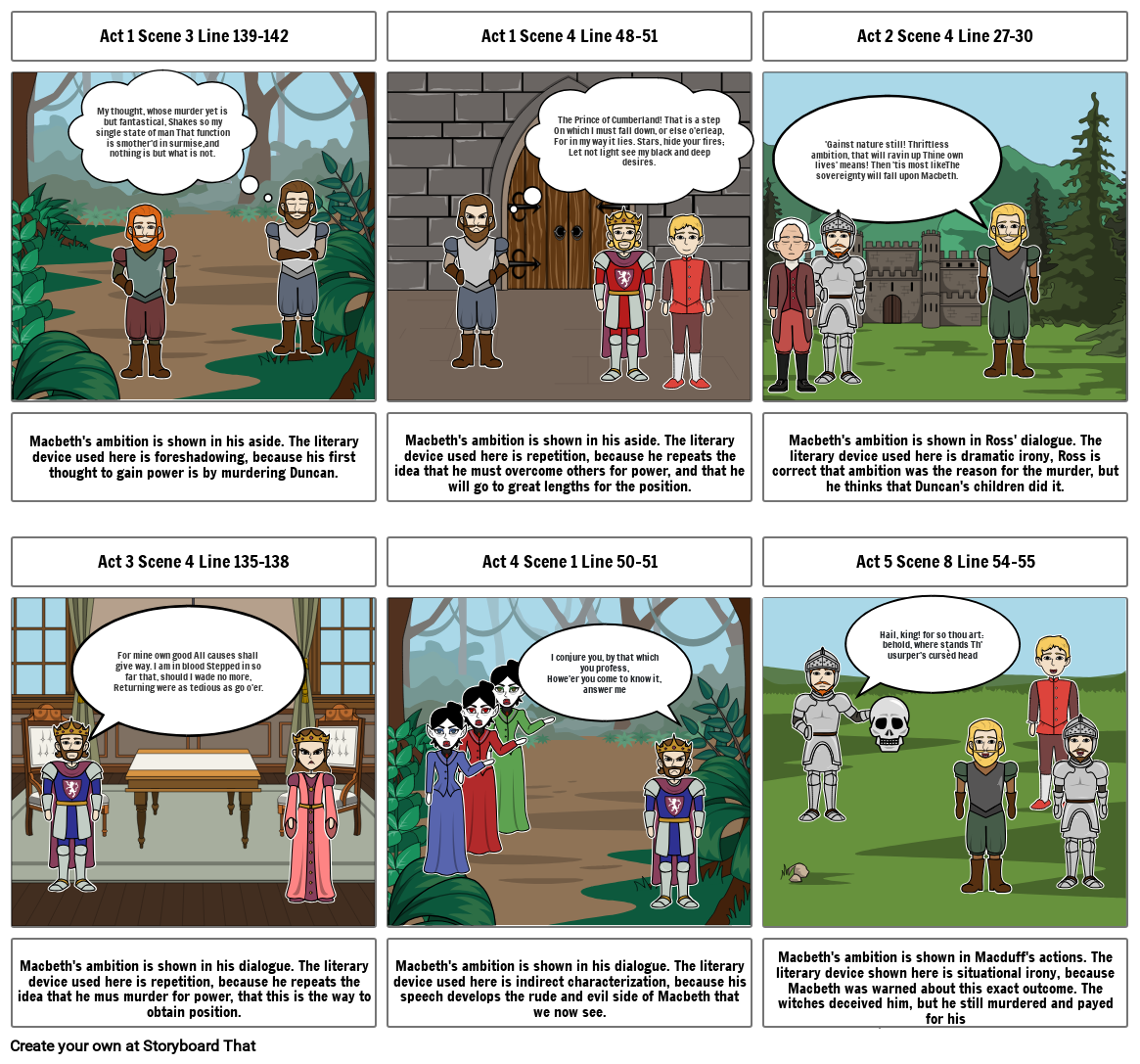Macbeth Graphic Novel

Süžeeskeem Tekst
- Libisema: 1
- Act 1 Scene 3 Line 139-142
- My thought, whose murder yet is but fantastical, Shakes so my single state of man That function is smother'd in surmise,and nothing is but what is not.
- Macbeth's ambition is shown in his aside. The literarydevice used here is foreshadowing, because his first thought to gain power is by murdering Duncan.
- Libisema: 2
- Act 1 Scene 4 Line 48-51
- The Prince of Cumberland! That is a step On which I must fall down, or else o'erleap, For in my way it lies. Stars, hide your fires; Let not light see my black and deep desires.
- Macbeth's ambition is shown in his aside. The literarydevice used here is repetition, because he repeats the idea that he must overcome others for power, and that he will go to great lengths for the position.
- Libisema: 3
- Act 2 Scene 4 Line 27-30
- 'Gainst nature still! Thriftless ambition, that will ravin up Thine own lives' means! Then 'tis most likeThe sovereignty will fall upon Macbeth.
- Macbeth's ambition is shown in Ross' dialogue. The literary device used here is dramatic irony, Ross is correct that ambition was the reason for the murder, but he thinks that Duncan's children did it.
- Libisema: 4
- Act 3 Scene 4 Line 135-138
- For mine own good All causes shall give way. I am in blood Stepped in so far that, should I wade no more, Returning were as tedious as go o'er.
- Macbeth's ambition is shown in his dialogue. The literarydevice used here is repetition, because he repeats the idea that he mus murder for power, that this is the way toobtain position.
- Libisema: 5
- Act 4 Scene 1 Line 50-51
- I conjure you, by that which you profess,Howe'er you come to know it, answer me
- Macbeth's ambition is shown in his dialogue. The literarydevice used here is indirect characterization, because his speech develops the rude and evil side of Macbeth that we now see.
- Libisema: 6
- Act 5 Scene 8 Line 54-55
- Hail, king! for so thou art: behold, where stands Th' usurper's cursèd head
- Macbeth's ambition is shown in Macduff's actions. The literary device shown here is situational irony, because Macbeth was warned about this exact outcome. The witches deceived him, but he still murdered and payed for hisactions by Macduff's sword.
Loodud üle 30 miljoni süžeeskeemi

